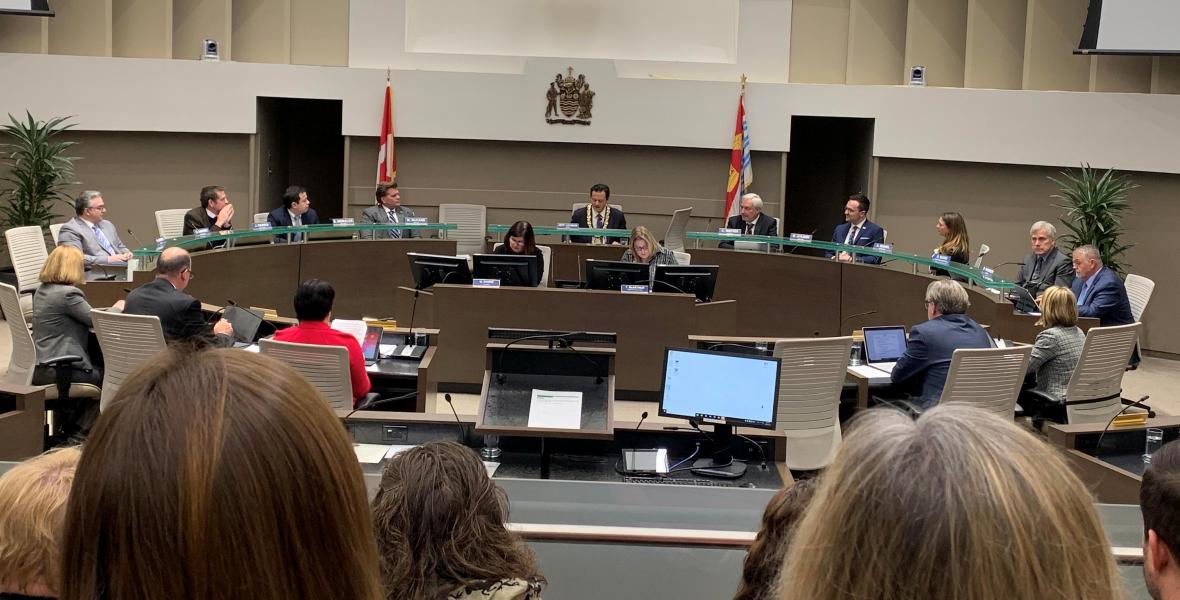In December, we at rabble.ca asked “What are the organizations that inspire you? Who are the activists leading progressive change? Who are the rabble rousers to watch in 2021?” And you responded. Over the next while, we’ll be running both print and audio features about the people and organizations you nominated. Follow our rabble rousers to watch here.
We begin our podcast series with a nomination from Barrie, Ontario. In fact, there were several nominations from Barrie, one for the organization you’re about to hear from.
rabble podcast producer Victoria Fenner was especially interested in the Barrie nominees because she lived in Barrie for the past five years. She can personally attest that it is a very tough place to be a progressive. She says, “After all, it’s the only place east of Manitoba that ever elected a Reform party MP. It’s solid Conservative country … and we’re not talking red Tories here. But, there is change afoot, and progressive people are starting to come out of the woodwork.”
There are many communities like this in Canada, so talking to the nominees from Barrie could be useful for other communities of a similar political stripe. Our two guests today talk about what they, and other Barrie residents, are doing to shift the dynamic through the organization called Engage Barrie, one of the rabble rousers organization nominees.
Our guests today are:
Alyssa Wright — Alyssa was also nominated in her own right for the work she has been doing in Barrie on a wide range of issues. She describes herself as “musician, writer, educator, advocate, activist, actor, and wearer of far too many hats.” In the conservative city of Barrie, Alyssa has connected a community of progressives who are eager for change. She is one of the organizers for Engage Barrie, an initiative designed to reconnect a community with its local politics. She is also an advocate for installing a supervised consumption site in Barrie — what would be the city’s first.
Alyssa is also a cello player, and it’s her life mission to use arts to tackle difficult issues. She’s currently co-writing a musical theatre feminist manifesto, in response to Barrie being rated 2019’s “Worst City to be a Woman” by the Canadian Centre for Policy Alternatives. (A title she reckons the city will win again for 2020). “This past year has shown me that there is more compassion in this community than is evidenced in our political leadership,” says Alyssa. The people of this city have shown me that there are lots more reasons for optimism than despair.”
Brandon Rhéal Amyot is an activist, writer, and life-long learner. Growing up in Simcoe County for most of their life, they have been involved in various causes and communities over the past 10 years, with a specific focus on the 2SLGBTQ+ community, Indigenous community, the student movement, and local causes. Brandon Rhéal is in their third year of the interdisciplinary studies degree at Lakehead University’s Orillia Campus with disciplines in political science and media studies. At Lakehead they have been involved with campus life, most recently as a board member on the Lakehead University Student Union. Brandon Rhéal also has a diploma in Aboriginal Community and Social Development from Georgian College. Brandon Rhéal was a founding member of Fierté Simcoe Pride. In their time with the organization, Brandon served in several roles ending in their time as president (2017- 2019). Shortly after helping form Fierté Simcoe Pride, they served a term as student trustee at the Simcoe County District School Board.
A note about our theme music: The theme music featured in the podcast is a composition by rabble.ca’s parliamentary reporter Karl Nerenberg. It’s called La Touladie en hiver. In Karl’s own words —
“It is a tune that came to me while walking in the Hampton Park woods, near our house. I was thinking of a grey, December day, and of appropriately languorous, not-rushed and not-too-complicated music. My ridiculous mind then made the leap from a grey day to the grey trout, the large member of the trout/salmon/char family that was once plentiful in most of the Great Lakes, then was almost destroyed by invasive, parasitic sea lampreys, but is now coming back. It is a winter fish. It thrives in cold water in fact. Grey trout are especially happy that, in winter, they can swim casually in shallow waters where the little fish they like to eat live. In summer, grey trout need to go deep, where the water is cold enough for them — but where there are few little fish (which prefer warmer water). In the deeps, all they have to eat, pretty much, is plankton. In Quebec, they most often call the grey trout le touladi, a word of uncertain origin, but most likely Indigenous.”
You can hear the whole composition, and see Karl playing … here …
Image: Alyssa Wright/Barrie City Council. Used with permission.
Music: La touladie en hiver – performed and composed by Karl Nerenberg. Used with permission.



